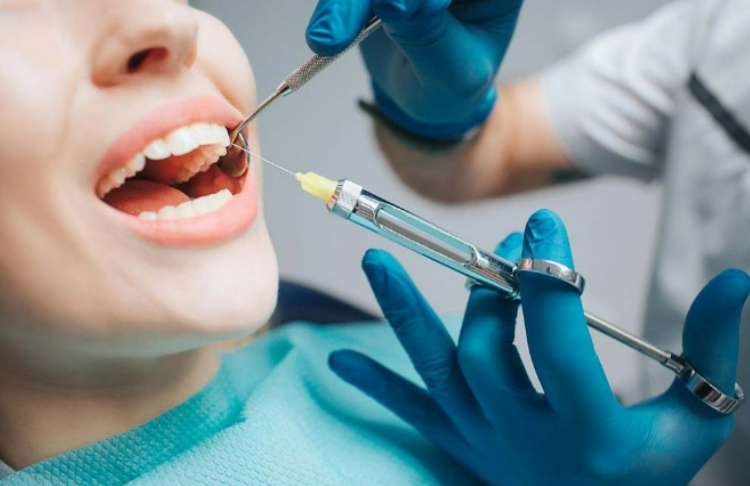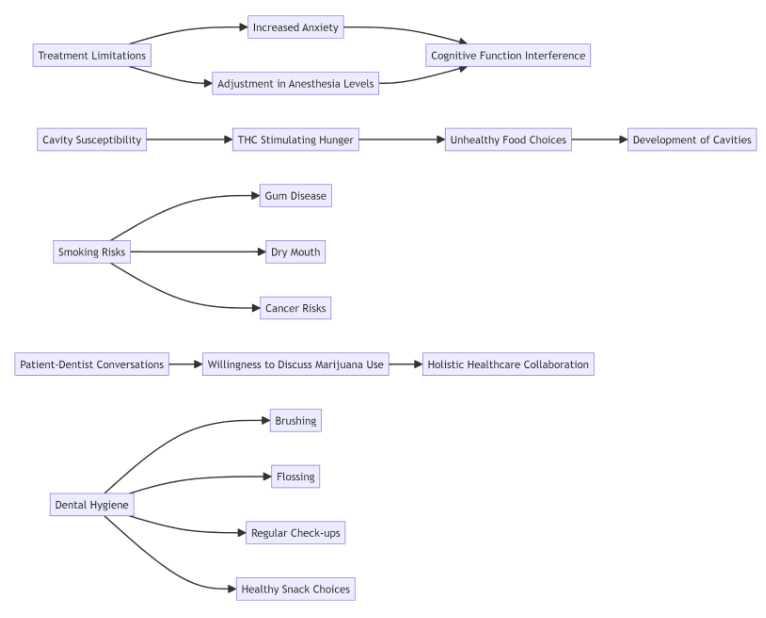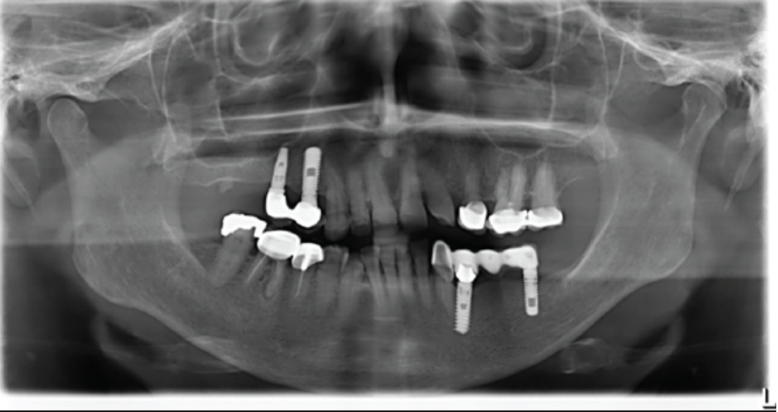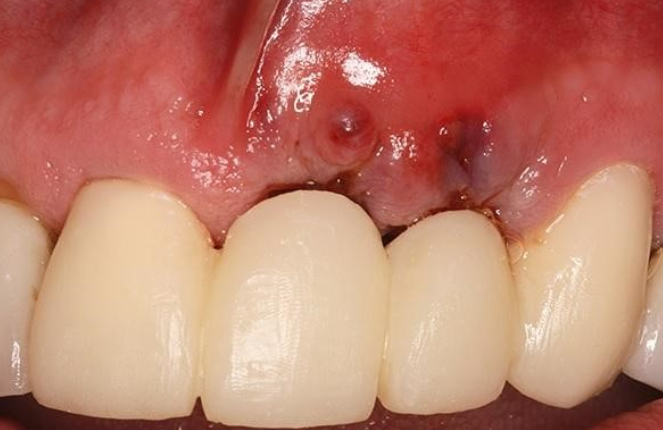Link found between marijuana use and tooth decay and other dental problems: New findings from the American Dental Association
According to recent data from practicing dentists, half of them have at least once encountered patients who are under the influence of cannabis and other drugs. The survey was conducted by experts from the American Dental Association (ADA), and this growing trend is jeopardizing the quality of dental care delivery. Cannabis use itself, in various forms, increases the risk of tooth decay and other dental problems. Let’s take a look at what the ADA has concluded and what steps dentists and patients need to take to offset the effects of marijuana on oral health.
Survey Insights: Navigating Treatment Challenges
The ADA survey, comprising responses from 557 dentists, sheds light on the limitations that marijuana use can impose on dental care. A staggering 56% of dentists reported having to limit treatment for patients under the influence. Furthermore, 46% mentioned the need to adjust anesthesia levels due to the interaction between marijuana and the central nervous system.
Unveiling the Impact on Anxiety and Treatment Options
The association between marijuana use and heightened anxiety during dental visits is a critical concern. Dr. Tricia Quartey, an ADA spokesperson, highlights the potential consequences: increased anxiety, paranoia, and hyperactivity. These factors not only elevate stress during appointments but also influence the efficacy of local anesthetics for pain control.
Dr. Quartey emphasizes the importance of clear-headed decision-making in determining the best treatment options. A collaborative approach between dentists and patients is hindered when marijuana interferes with cognitive functions.
Cavities and Marijuana: A Startling Connection
Beyond the immediate challenges during dental appointments, habitual marijuana use has been linked to a higher likelihood of developing cavities. Studies cited by the ADA indicate that regular marijuana users, especially those opting for edible or topical forms, exhibit a significantly increased susceptibility to cavities.
Dr. Quartey underscores the role of THC, the active ingredient in marijuana, in stimulating hunger. The less-than-healthy food choices made under the influence contribute to the emergence of cavities. Medically speaking, the phenomenon of “munchies” associated with marijuana use is a real concern for oral health.
Smoking Marijuana: Risks and Consequences
The survey delves into the various methods of marijuana consumption, with smoking being the most prevalent. Smoking marijuana is not only associated with gum disease and dry mouth but also elevates the risk of mouth and neck cancers. The ADA’s call for further research on the oral health effects of marijuana emphasizes the urgency of understanding these risks comprehensively.
Patients and Dentists: Navigating Conversations
An intriguing aspect revealed by the ADA survey is the willingness of patients to discuss marijuana use with their dentists. A commendable 67% of patients expressed ease in addressing this topic during dental appointments.
Dr. Quartey encourages dentists to initiate conversations about marijuana use while reviewing patient medical histories. The objective is to ensure holistic healthcare by collaborating with prescribing physicians when marijuana is used medicinally.
Maintaining Dental Hygiene: A Silver Lining
Despite the challenges posed by marijuana use, the ADA suggests practical steps for patients to maintain good dental hygiene. Brushing teeth twice a day with fluoride toothpaste, daily flossing, regular dental check-ups, and opting for healthy snacks can mitigate the potential oral health risks associated with marijuana use.
Understanding the Impact: A Diagram
Let’s visualize the key findings with a diagram:
In conclusion, as marijuana use becomes increasingly prevalent, it is imperative for both patients and dentists to be well-informed about its potential impacts on dental care. The ADA’s ongoing commitment to studying these effects and providing clinical recommendations underscores the importance of addressing this evolving aspect of oral health.
Sources:
American Dental Association










